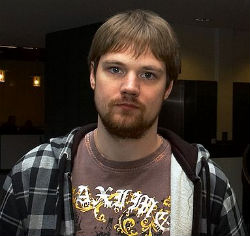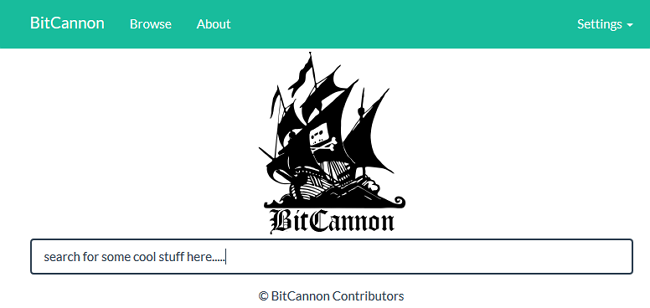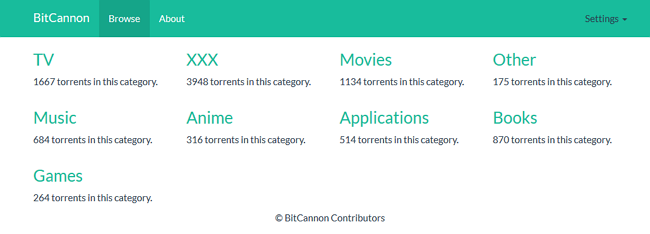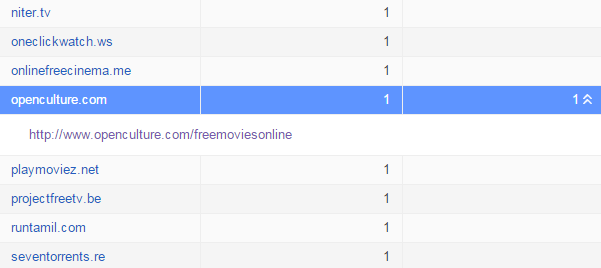“The Internet Would Never Have Existed Without The Copyright Monopoly”
dimanche 18 janvier 2015 à 23:02 I had an interesting exchange of opinions with a copyright industry lawyer the other day.
I had an interesting exchange of opinions with a copyright industry lawyer the other day.
In what appeared to be a private conversation on Twitter between colleagues I was called out as evil, claiming that all the anti-copyright-monopoly sentiment on the Internet came from me personally.
Of course, knowing how Twitter works, anybody mentioning my name gets an immediate highlight on my screen, and so I took the liberty of butting in to the conversation a few seconds later.

I explained patiently that the Pirate Party could not possibly exist if there wasn’t already a widespread sense of information liberty; that the sentiment of the Internet already was that the copyright monopoly was there to constrict and punish rather than anything else.
To my surprise, the copyright industry lawyer responded that the entire Internet would not have existed at all without the copyright monopoly. This was a statement that would have been trivial to ridicule to smithereens (“please explain how Al Gore fits into it?”), but it made me genuinely curious. How do these people think, anyway?
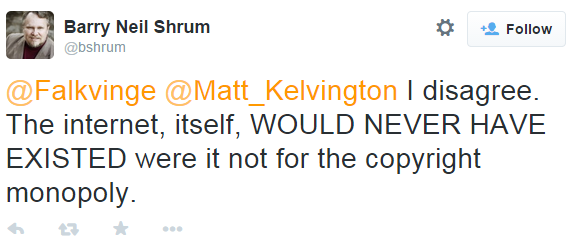
So when I asked which part of the Internet Mr. Shrum referred to – DARPA (ARPAnet), TCP/IP, or CERN [sic, referring to the birth of WWW but I didn’t write that out], he surprised me even more by saying “All of them”.
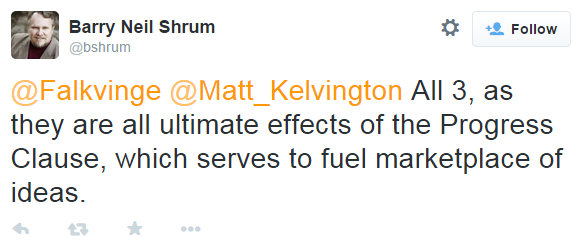
Somewhat to my surprise, this lawyer also picked up on the “monopoly” moniker as can be seen above, not trying to argue against that characteristic at all. So being aware that there was a monopoly, this copyright industry lawyer still argued that no part of the Internet would have been created without that monopoly.
Of course, this goes completely counter to actual history: particularly with regards to the World Wide Web, which was specifically created in Switzerland to circumvent the monopoly previously held by University of Minnesota in the US, where a similar technology by the name of Gopher had been developed. When somebody claims exclusive rights to a standard on the Internet, that standard is generally dropped like a bad habit and replaced by something else immediately. That has happened several times, and the WWW standard was such a replacement.
However, I gained a lot of understanding from this short exchange. It would appear the people we are debating in the copyright industry are reasoning something like this:
1 – the Progress Clause (the justification for the copyright monopoly in article 8 in the US Constitution, allowing Congress to create exclusive rights in order to “Promote the Progress of Science and the Useful Arts”) means that any law created using that justification automatically has the effect of also promoting such progress in all its applications and spheres of influence.
2 – therefore, anything created in an environment where such a law exists, created under a monopoly regime covering expressions of ideas, could not have been conceived without the existence of the law in question.
If this is the actual reasoning – and it would appear that it is – then it becomes comprehensible why net liberty activists who fight for the freedom to create without permission are seen as evil by the copyright industry. If they genuinely believe that everything that exists was created because the copyright monopoly exists, then somebody who wants to take away that monopoly regime would plunge the world into darkness where nothing more is created, ever.
Stop laughing.
This explains the worldview we’re going up against when discussing the topic, and as such, it was valuable to understand. It fits well in with my observation that copyright monopoly maximalists are acting like religious fundamentalists a few years back – especially given the apparent non-need to check on actual facts, when all the “facts” could be easily deduced from the certainty that everything created was created because there is a copyright monopoly.
At some point later in the discussion, a colleague in the copyright industry butted in and subtly suggested that this lawyer might want to stop arguing the point that the Internet was created because of the copyright monopoly before reading up on the actual history.
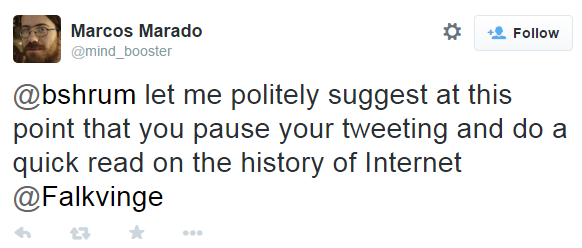
That was the end of that discussion.

About The Author
Rick Falkvinge is a regular columnist on TorrentFreak, sharing his thoughts every other week. He is the founder of the Swedish and first Pirate Party, a whisky aficionado, and a low-altitude motorcycle pilot. His blog at falkvinge.net focuses on information policy.
Book Falkvinge as speaker?
Source: TorrentFreak, for the latest info on copyright, file-sharing, torrent sites and anonymous VPN services.
